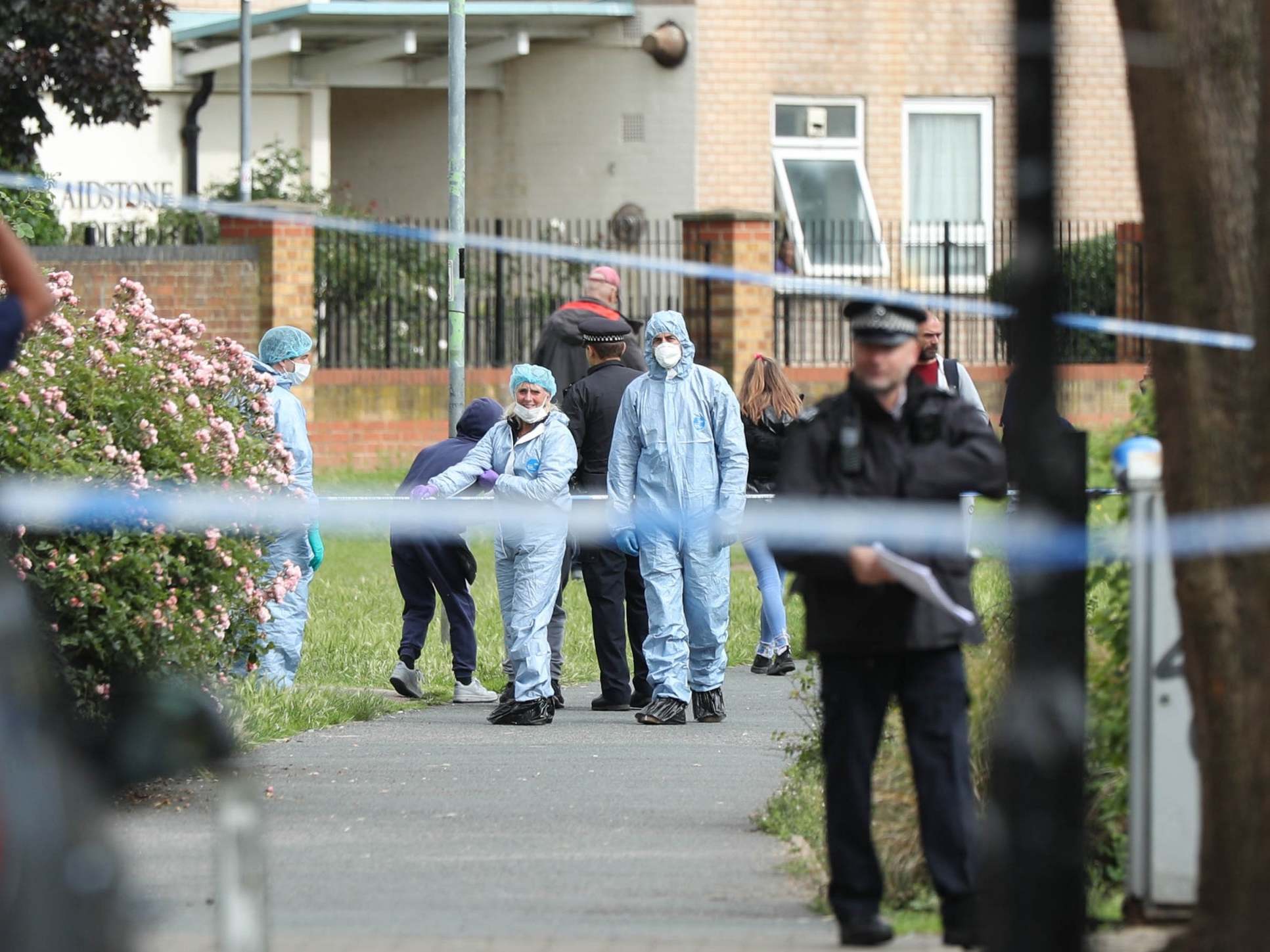London murder rates are falling, despite weekend of bloodshed and Trump tweets
Analysis: A spate of stabbings has sparked alarm, but figures suggest that violence is falling in London overall, writes Lizzie Dearden

The murders of four people in four days in London has put knife crime in the international spotlight, with Donald Trump among high-profile figures raising the alarm over the spate of violence.
Sensationalist responses have seen London labelled “stab city” and a “battlefield”, but statistics do not support the hysteria.
As of Monday, 59 people had been killed in London in 2019, compared with 78 by the same date last year.
If murders reach the same total as 2018, the rate will be 1.52 per 100,000 population – less than half that of New York’s, where 113 people have already been killed this year.
London does not feature on a list of the world’s 50 most deadly cities, which includes 42 in Latin America and four in the US – St Louis, Baltimore, Detroit and New Orleans.
Metropolitan Police figures released last month showed violence falling by key metrics, including street stabbings of under-25s, knife crime with injury and homicide.
At a briefing with journalists in May, commissioner Cressida Dick admitted that trumpeting the figures “can look rather bald” in the wake of brutal stabbings, adding: “Each death is absolutely ghastly, each young man stabbed is a horrible thing for their family, their friends and their community.”
But she insisted that bolstered operations aiming to reduce violence, including blanket stop and search powers and weapon seizures, were “beginning to pay definite dividends”.
Scotland Yard emphasised that officers have already made 14 arrests linked to the weekend’s murders and were targeting affected areas with high visibility patrols.
The deputy assistant commissioner, Matthew Twist, said: “The circumstances, causes and motives for any homicide or serious violence incident are different and unique, and require different investigative strategies and approaches.
“But we are taking a service-wide response and all officers right across London continue to be relentless in our pursuit of those who bring violence to our communities.”
Investigators said the four killings between Friday and Monday – three stabbings and one shooting – were not linked and appealed for help from local communities to tackle and prevent wider crime.
The violent deaths have sparked fresh criticism of the mayor of London, Sadiq Khan, who also acts as the capital’s police and crime commissioner.
His opponents seized on the killings to further a persistent narrative that holds the Labour mayor personally responsible for violence and terror attacks in London.
The US president called Mr Khan a “national disgrace” and accused him of “destroying” London, after calling for a new mayor and claiming: “Khan is a disaster – will only get worse!”
Mr Trump shared a post by Katie Hopkins, the Apprentice candidate turned far-right commentator, which called London “stab-city” and labelled it “Khan’s Londonistan”.
Mr Khan retorted by saying Mr Trump is seen as “a poster boy for racists around the world” and pledging to continue to invest in policing after “massive cuts from central government”.
The addition of “-istan” to British place names is a longstanding trend among anti-Muslim groups, and appears on a list of flags for potential right-wing extremism used in the British army.
Mr Khan’s Pakistani-Muslim heritage has made him a global lightning rod for abuse, threats and conspiracy theories, causing him to be given 24-hour police protection.
Speaking in May, Ms Dick said Scotland Yard had been using extra funding from Mr Khan to recruit more officers and increase operations.
In the wake of another spate of fatal stabbings in March, the Metropolitan Police commissioner had openly contradicted Theresa May’s claim that there was no link between budget cuts and rising violence.
The prime minister oversaw slashes to police budgets as home secretary and forces across England and Wales have lost more than 20,000 officers since 2010, while youth services and other prevention work also suffered the effects of austerity.
Police date the national rise in violence to 2014, when the coalition government was in power and Conservative leadership hopeful Boris Johnson was mayor of London.
But with Mr Johnson dodging a television debate and hustings in the political lobby, no one has been able to question him on his own record.